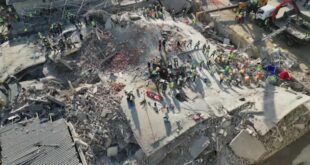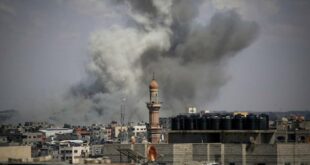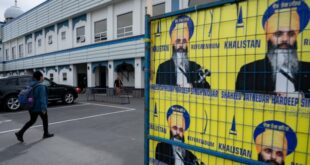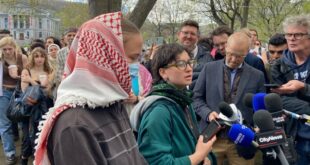Waushush Onigum Nation meets with Ontario, federal ministers on Tuesday

Wauzhushk Onigum Nation says ground-penetrating radar (GPR) has detected more than 170 anomalies during a search for unmarked graves at the site of a former residential school in Kenora, Ont.
The anomalies, referred to as "plausible burials," were found in cemetery grounds associated with the former St. Mary's Indian Residential School, Wauzhushk Onigum Nation said in a media release Tuesday.
The search began in May.
"With the exception of five grave markers, the remaining are unmarked by any grave or burial markers," the release said. "The site has been secured consistent with the Nation's Anishinaabe protocols."
Wauzhushk Onigum said it plans to investigate the anomalies further and conduct searches at additional sites "that have been identified through survivor testimony, archeological assessment and archival investigations that show burial rituals being conducted by former residential school staff," the release said.
St. Mary's Indian Residential School was operated by the Roman Catholic Church from 1897 to 1972. The National Centre for Truth and Reconciliation's says at least 36 students died while attending the school.
First Nation meets with government officials
On Tuesday, Wauzhushk Onigum representatives were to meet with federal Crown-Indigenous Relations Minister Marc Miller, Ontario Minster of Indigenous Affairs Greg Rickford, federal Minister of Indigenous Services Patty Hajdu and Kimberly Murray, special interlocutor for missing children and unmarked graves and burial sites associated with residential schools.
The meeting is to discuss the next steps and resources to cover the upcoming investigations.
"We are hopeful that our discussions with Canada and Ontario [Tuesday] afternoon will be productive," Wauzhushk Onigum Chief Chris Skead said in a statement. "Both Canada and Ontario have continued to express their commitment to reconciliation, to the truth, and to healing of our communities.
"We look forward to hearing if they will continue to honour these commitments."
Canada operated over 150 residential schools for over 140 years, with the last one, in Saskatchewan, closing in 1996.
An estimated 150,000 Indigenous children were taken from their homes and forced to go to the schools and assimilate into settler culture.
In May 2021, the T'kemlups te Secwepemc First Nation announced it had identified an estimated 200 potential burial sites at the former Kamloops Indian Residential School. Since then, hundreds more potential sites have been identified across Canada.
*****
Credit belongs to : www.cbc.ca
 MaharlikaNews | Canada Leading Online Filipino Newspaper Portal The No. 1 most engaged information website for Filipino – Canadian in Canada. MaharlikaNews.com received almost a quarter a million visitors in 2020.
MaharlikaNews | Canada Leading Online Filipino Newspaper Portal The No. 1 most engaged information website for Filipino – Canadian in Canada. MaharlikaNews.com received almost a quarter a million visitors in 2020.







